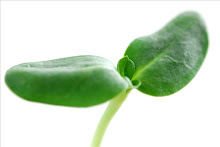
When I was a young girl one of my favorite books was
Island of the Blue Dolphins, by Scott
O'Dell. It provided a glimpse into a world very different from my own where animals become equals. A world where the life of an animal is as important as that of a human. It sheds light on the larger environment that exists outside of our "normal" human life.
I recently had the opportunity to go on a whale watching tour outside of Dana Point Harbor in Southern California. After taking a
dramamine and arrogantly believing that would be sufficient for any potential nausea I was quickly humbled by the greatness of the ocean. The further we got from land the more my stomach tossed and turned. I shrugged off the majesty I was
experiencing by counting the minutes before my feet would be firmly placed on land. I didn't understand all of the oohs and
awwws that were coming from people when they thought they saw the hump of a whale or a splash of water that might have been a dolphin. Whatever. Then the dolphins
materialized. Beautiful, playful dolphins. My favorite creature. The particular species that we witnessed were
Common Dolphins, named as such because they are common in various regions around the world. I realized that despite the constant nausea I was
experiencing I could sit and watch these aquatically playful creatures all day long.
Then the whale search began. This is when I really sighed and shrugged off the humps that were surfacing hundreds of yards from the boat. "That is what we came out here for?!" I began to think that whale watching was not at all what I had expected. A shot of water here, a hump surfacing there, all too far for anyone to really understand what we were seeing. And then it happened. A few close feet from the boat this
magnificently graceful
blue whale surfaced to reveal hundreds of feet of gray-blue blubber. I found the experience to be equally
exhilarating and terrifying. The size of this mammal revealed the
grandioseness that exists outside of myself and how
inconsequential I am within the greater world. The blue whale is the largest mammal, and possibly the largest animal to inhabit the earth, with a length reaching upward of 100 feet. Suddenly my nausea and
indifference to the whale watching experience dissipated.
In all their naive bliss these animals, dolphin and whale alike, seemed so incredibly peaceful and playful in their ordinary routines. It made me sadly ponder their potential demise if we continue with the environmental Apocalypse we are creating.
Ocean pollution is becoming an major problem for ocean organisms. Toxic chemicals, plastic, garbage, and oil spills are all making their ways into our water ways while gravely affecting sea life. Due to the food chain these toxins are likely to end up in our systems since one toxic organism eats a smaller toxic organism only to end up in the seafood that ends up on your plate. That is if the seafood doesn't become extinct first due to the plethora of toxins these organisms are facing. And if it isn't toxins that kills the whales and dolphins and their friends it might surely be the plastic bags. According to the
World Wildlife Fund Report that thousands of different species of sea life including whales, dolphins, seals and turtles die each year due to plastic bags littering.
Additionally, the
U.S. National Academy of Sciences reports that "a study in 1975 showed oceangoing vessels together dumped 8 million pounds of plastic annually. The reason that the world's landfills weren't overflowing with plastic was because most of it ended up in an ocean-fill." That report is from 1975 and one can only hope that things have since improved, yet the cruise ship industry shows otherwise.
According to Marcie
Keever, director of the
Clean Vessels Campaign of Friends of the Earth, a one week voyage on a cruise ship produces 210,000 gallons of sewage, a million gallons of gray water (runoff from sinks, baths, showers, and laundry), 25,000 gallons of oily bilge water, 11,550 gallons of sewage sludge and 130 gallons of hazardous waste. All in the water. All in the home of those beautiful blue whales and playfully innocent dolphins.
As I sign off I am becoming nostalgic. Long before
Weeds and
Desperate Housewives there was a show that caught my attention like no other.
Flipper. How could anyone even consider dumping toxins into the likes of Coral Key Park and Marine Preserve? To kill Flipper? It's
unconscionable. We need to think the same way of all ocean life and work to make changes that will preserve our oceans and our earth.
"Eternity begins and ends with the ocean's tides." -unknown





